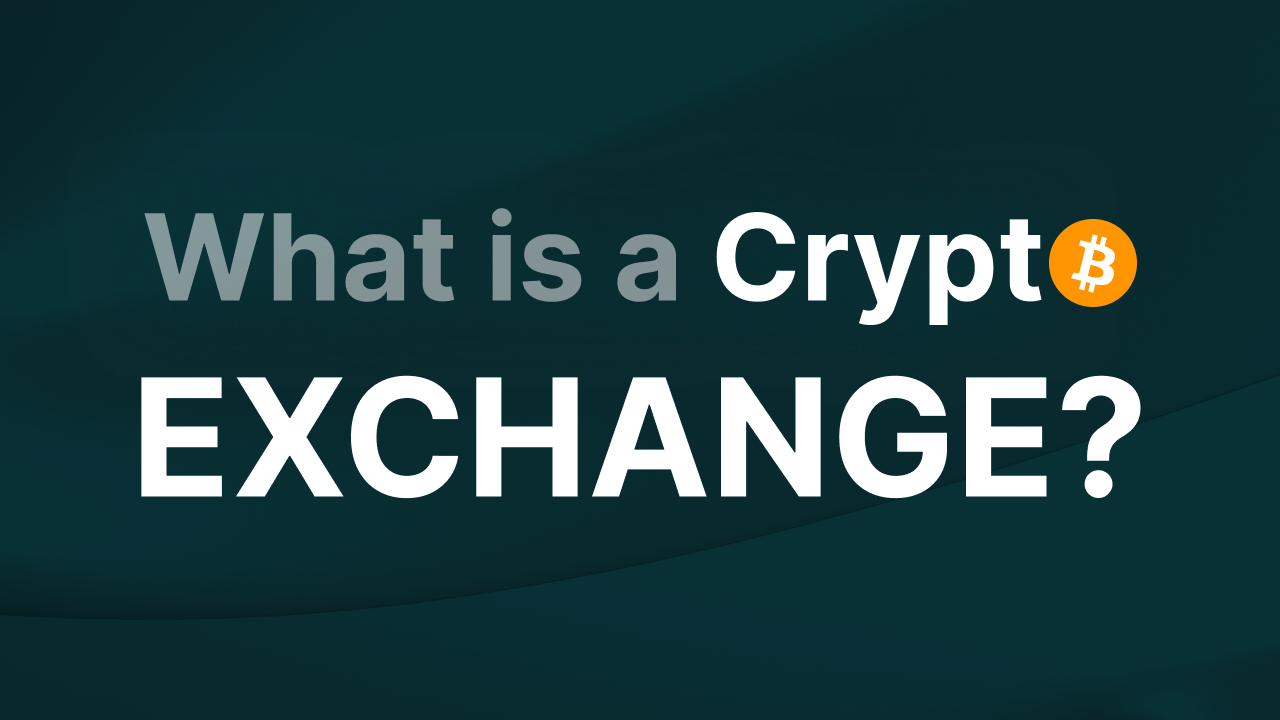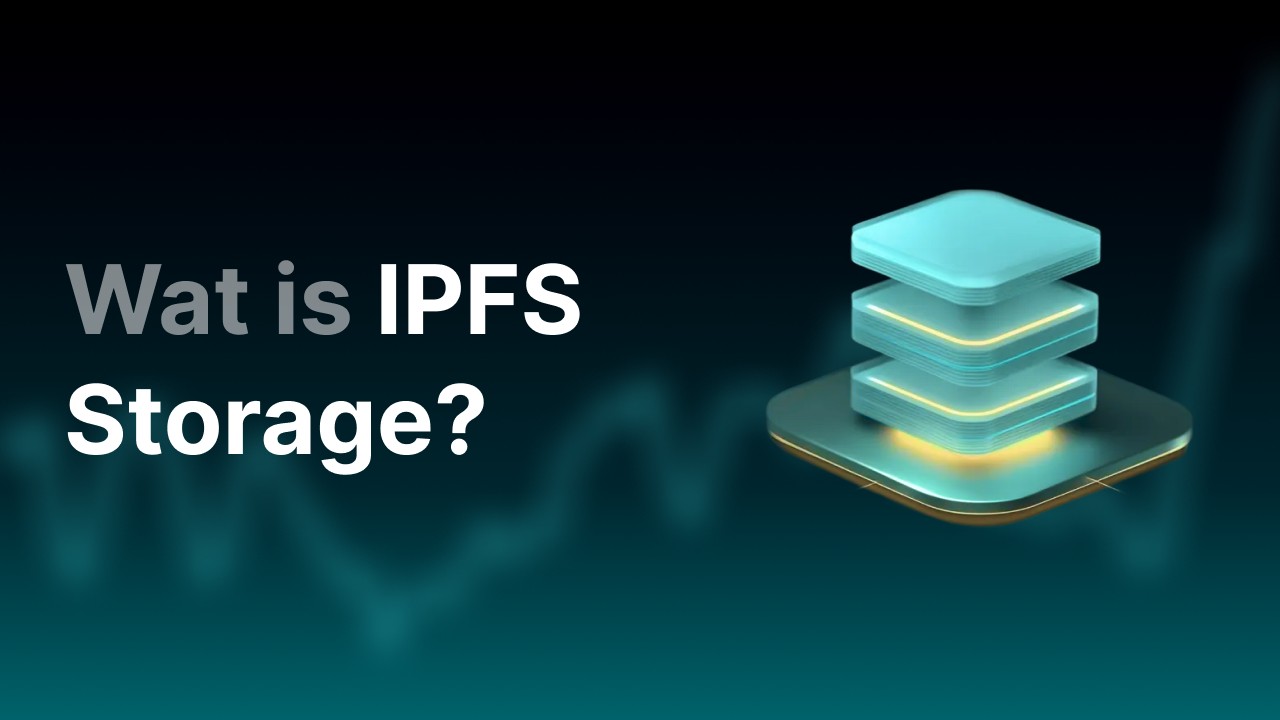What is a crypto exchange?

What is a crypto exchange?
A crypto exchange is an online platform where users can trade cryptocurrencies. Essentially, it’s a marketplace for cryptocurrencies where buyers and sellers meet to exchange digital assets based on current market prices. You can compare it to a stock exchange, but instead of trading company shares, you're trading cryptocurrencies like Bitcoin (BTC), Ethereum (ETH), or Solana (SOL).
Most cryptocurrency exchanges also allow you to trade crypto pairs, which means you can exchange one cryptocurrency for another. For example, you can trade Bitcoin for Ethereum or vice versa.
Key Takeaways
- A crypto exchange is a platform where cryptocurrencies are bought and sold.
- There are centralized (CEX), decentralized (DEX), and hybrid exchanges.
- Exchanges often require account verification (KYC) and allow fiat or crypto deposits.
- Liquidity, fees, and security vary between platforms.
- When choosing an exchange, look at user-friendliness, regulation, and asset availability.
How do crypto exchanges work?
Crypto exchanges function similarly to traditional financial exchanges but with a few key differences. Here’s how they typically work:
-
Create an account: To use a crypto exchange, users first need to create an account. This usually involves providing personal information and verifying your identity (KYC – “Know Your Customer”), especially on regulated exchanges.
-
Deposit funds: Once your account is set up, you can deposit funds to start trading. Most exchanges accept deposits in fiat currency (like euros or dollars) or cryptocurrencies. Some platforms support bank transfers, credit/debit cards, or even PayPal.
-
Place orders: You can place buy or sell orders for cryptocurrencies.
-
Execute transactions: When a buyer’s price matches a seller’s price, the exchange executes the trade. The cryptocurrency is transferred from the seller to the buyer, and the corresponding fiat or crypto amount is exchanged.
-
Withdraw funds: After trading, users can send their crypto to a personal wallet or convert it back to fiat currency and withdraw it to their bank account.
What’s the difference between a cryptocurrency broker and a crypto exchange?
A crypto exchange is a trading platform where buyers and sellers trade cryptocurrencies directly with each other, often via an order book that matches supply and demand. A cryptocurrency broker, on the other hand, acts as an intermediary: you buy or sell crypto directly from or to the broker at a set price they determine. This is simpler and more beginner-friendly. In short, exchanges cater to active traders, while brokers prioritize ease and accessibility.
Types of crypto exchanges
There are several types of crypto exchanges, each tailored to different users and trading styles. Here's a breakdown of the most common types:
Centralized Exchanges (CEX)
A centralized crypto exchange is the most common type of trading platform. These exchanges are managed by a central company that acts as a middleman between buyers and sellers. Centralized exchanges typically offer higher liquidity, making it easier to trade large amounts of crypto without significant price changes.
Pros:
- High liquidity and fast transactions
- User-friendly interface
- Support for fiat deposits and withdrawals
Cons:
- Users don’t control their private keys (the exchange holds them)
- Regulatory compliance and KYC are often required
Decentralized Exchanges (DEX)
A decentralized exchange operates without a central authority. Instead, it uses blockchain technology to enable peer-to-peer trading, meaning users trade directly with each other without intermediaries. DEXs are gaining popularity due to their focus on privacy and security.
Some well-known DEXs include Uniswap, PancakeSwap, and SushiSwap.
Pros:
- Users retain control of their private keys
- Greater privacy (less likely to require identity verification)
- Lower risk of a single point of failure
Cons:
- Lower liquidity compared to centralized exchanges, as users must provide liquidity themselves
- Less beginner-friendly
- Limited support for fiat currencies
Hybrid Exchanges
Hybrid exchanges aim to combine the best of both centralized and decentralized exchanges. They offer the liquidity and ease of use of centralized exchanges while giving users more control over their assets like a DEX.
Hybrid exchanges are relatively new, but they try to merge the benefits of both systems while solving their weaknesses.
What to consider when choosing a crypto exchange
If you're considering using a crypto exchange, here are key factors to keep in mind:
-
Security: Protecting your funds is essential. Look for exchanges with strong security measures like two-factor authentication (2FA), Proof of Reserves (PoR), and asset segregation.
-
Fees: Exchanges charge fees for trades, deposits, and withdrawals. These vary widely between platforms. Check our fees comparison page to see which platform suits you. Common fees include:
- Trading fees: A percentage of each transaction.
- Deposit/withdrawal fees: Charged for moving assets in and out of the exchange.
-
User experience: Beginners will benefit from an intuitive and easy-to-navigate platform. Look for an exchange with clear instructions for placing trades, depositing funds, and making withdrawals.
-
Available cryptocurrencies: Not all exchanges offer every cryptocurrency. Ensure the platform supports the digital assets you're interested in trading. Most exchanges support Bitcoin and many altcoins.
-
Liquidity: Liquidity refers to how easily you can buy or sell an asset without causing large price changes. High liquidity ensures you can trade quickly and at stable prices. Larger exchanges tend to have more liquidity due to their user base.
-
Regulation: Some exchanges are regulated, while others operate in decentralized or unregulated environments. Regulated platforms offer more protection but often require identity verification (KYC) and comply with strict laws.
How to get started with a crypto exchange
Here’s a quick guide to help you start trading on a crypto exchange:
-
Choose an exchange: Research and compare exchanges based on fees, available assets, security, and user experience.
-
Create an account: Sign up and complete any required verification steps. Be prepared to submit ID documents if KYC is needed.
-
Deposit funds: Depending on the platform, you can deposit fiat (like euros or dollars) or cryptocurrency. Many exchanges accept bank transfers, credit cards, or PayPal.
-
Place a trade: Once your funds are available, start trading. Choose your order type and select the crypto you want to buy or sell.
Final thoughts
A crypto exchange is a vital part of the cryptocurrency ecosystem, offering a platform where users can trade digital currencies. Whether you’re a beginner making your first Bitcoin purchase or an advanced trader managing complex positions, exchanges provide the tools to participate in this fast-growing market.
When choosing an exchange, it’s important to prioritize factors like security, fees, and liquidity—and always do your research before trading. With the right platform, you can explore the world of cryptocurrency confidently and make informed investment decisions.




